Malaysian GP: Wet, wild and unpredictable
- Published
Formula 1 heads to Malaysia this week for the second race of the season following the dramatic Australian Grand Prix.
With Daniel Ricciardo's disqualification, Lewis Hamilton's engine failure and Sebastian Vettel's retirement, Malaysia has quite an act to follow.
But, given Sepang is renowned for its unpredictable weather, anything can happen this weekend.
The track
The 3.44-mile Sepang International Circuit, the first to be designed by F1 circuit architect Hermann Tilke, was first introduced to Formula 1 in 1999.
Now in its 16th year as part of the world championship, the track is popular among the drivers because, although it is predominantly flat, the variety of corners around the lap makes it an exciting challenge.
The penultimate corner, in particular, can prove troublesome, as a delicate balance between throttle and brake is needed to navigate it successfully. Lock up and you are off the track, particularly if it is wet which, in Malaysia, it often is.
In total, Sepang features 15 turns and a straight with speeds of 190mph, making for plenty of overtaking opportunities.
The venue
Hot and dry with the ever-looming threat of a monsoon, drivers, engineers and journalists turn up at the Sepang International Circuit on each day of the race weekend never quite knowing what to expect.
The track is a short distance from Kuala Lumpur airport but 37 miles from the city itself. It is built on the site of a former oil palm plantation and the canopies above the grandstands are a nod to this, while also mirroring the 5,000 palm trees - planted to replace those that were lost - that surround the circuit.
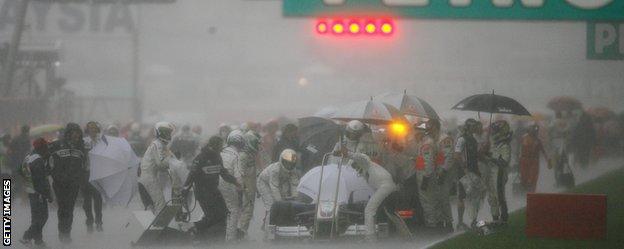
Teams and drivers always have to be ready for rain at the Malaysian Grand Prix. An unexpected heavy downpour can happen in an instant
What the drivers say...
Mercedes driver Lewis Hamilton: "I finished second on my Formula 1 debut here in 2007 and have been on the podium at the last two Malaysian Grands Prix but I've yet to win here. It would be amazing to stand on the top step at one of our home races and I'm looking forward to bouncing back after a tough weekend in Australia."
Mercedes driver Nico Rosberg: "Normally the weather is seen as the biggest challenge but this season is different, with reliability the focus of everyone's attention. Of course, it will still be hot, humid and probably wet at some stage too, so it should be a fascinating weekend."
Williams driver Felipe Massa: "The heat has a big effect on the tyres and how quickly they degrade. These extreme temperatures means Malaysia is less like any other circuit we race at."
Sauber driver Adrian Sutil: "If a car is good in Sepang, then it will be fast on other tracks as well. You need everything here - good aerodynamics, grip in the corners and high speed on the straights. The aerodynamic efficiency of the car is a key."
Lotus driver Romain Grosjean: "The first challenge in Malaysia will be the heat, humidity and usual rain storms at 4pm! For us as a team, the target is to move forwards and improve. The aim now is to have a straightforward weekend at Sepang, working through our proper schedule in free practice, then carrying the benefits from that over to qualifying and the race."
A classic Malaysian GP
There have been a few, but one of the most memorable has to be the 2001 event. What looked as if it would be a straightforward romp to victory for Ferrari's Michael Schumacher was turned into a classic by an early downpour which saw a display of stunning driving by the German, who went from a disastrous start to dominate.
Schumacher and team-mate Rubens Barrichello were the early pacesetters, but, as rain started to fall on lap three, they slid off the track in tandem while going through a quick right-hander and both were lucky to make it back to the pits. By the time they did, the rain was bucketing it down, and this was where Ferrari made the decision that won them the race.
Both cars were fitted with intermediate tyres while most of the other leading runners chose full wets. The circuit was well and truly soaked, and Ferrari's decision initially looked as if it might backfire. But the safety car was sent out to control the race until the rain had abated, which meant conditions were perfect for the lighter-treaded intermediates by the time it pulled in.
Schumacher was 10th at the restart with Barrichello 11th, but both men cut through the field, with Schumacher winning ahead of his team-mate.
Malaysian Grand Prix coverage details
Live text commentary on the BBC Sport website for all sessions.
Thursday, 27 March (GMT)
Race preview show: 20:30-21:00 BBC Radio 5 live
Friday, 28 March (GMT)
First practice: 01:55-03:35 BBC Two and BBC Radio 5 live sports extra; 08:00 & 16:10 BBC Red Button
Second practice: 05:55-07:35 BBC Two & BBC Radio 5 live sports extra; 09:40 & 17:50 BBC Red Button
Saturday, 29 March (GMT)
Third practice: 04:55-06:05 BBC Two & BBC Radio 5 live sports extra
Qualifying: 07:00-09:30 & 13:15-15:30 BBC One; 07:55-09:05 BBC Radio 5 live sports extra; 18:00 BBC Red Button
Additional camera streams: Tracker/onboard/timings/pit lane feed, 07:55 selected Connected TVs & online (plus pit lane feed, 07:55 BBC Red Button)
Sunday, 30 March (BST)
Race: 08:00-11:15 & 13:45-15:45 BBC One; 08:30-11:00 BBC Radio 5 live
Additional camera streams: Tracker/onboard/timings/pit lane feed, 08:55 selected Connected TVs & online (plus pit lane feed, 08:55 BBC Red Button)
F1 Forum: 11:15 & 16:00 BBC Red Button
Highlights: 21:00 BBC Red Button
- Published16 March 2014

- Published21 March 2014
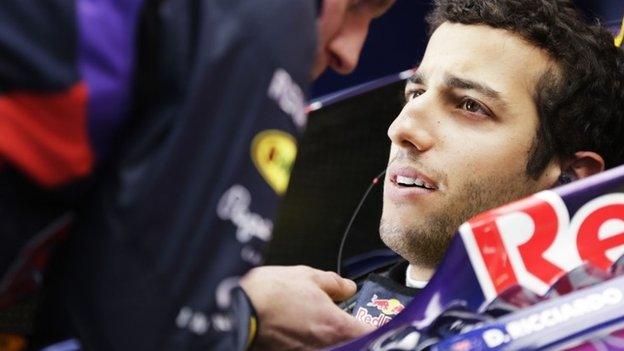
- Published19 March 2014
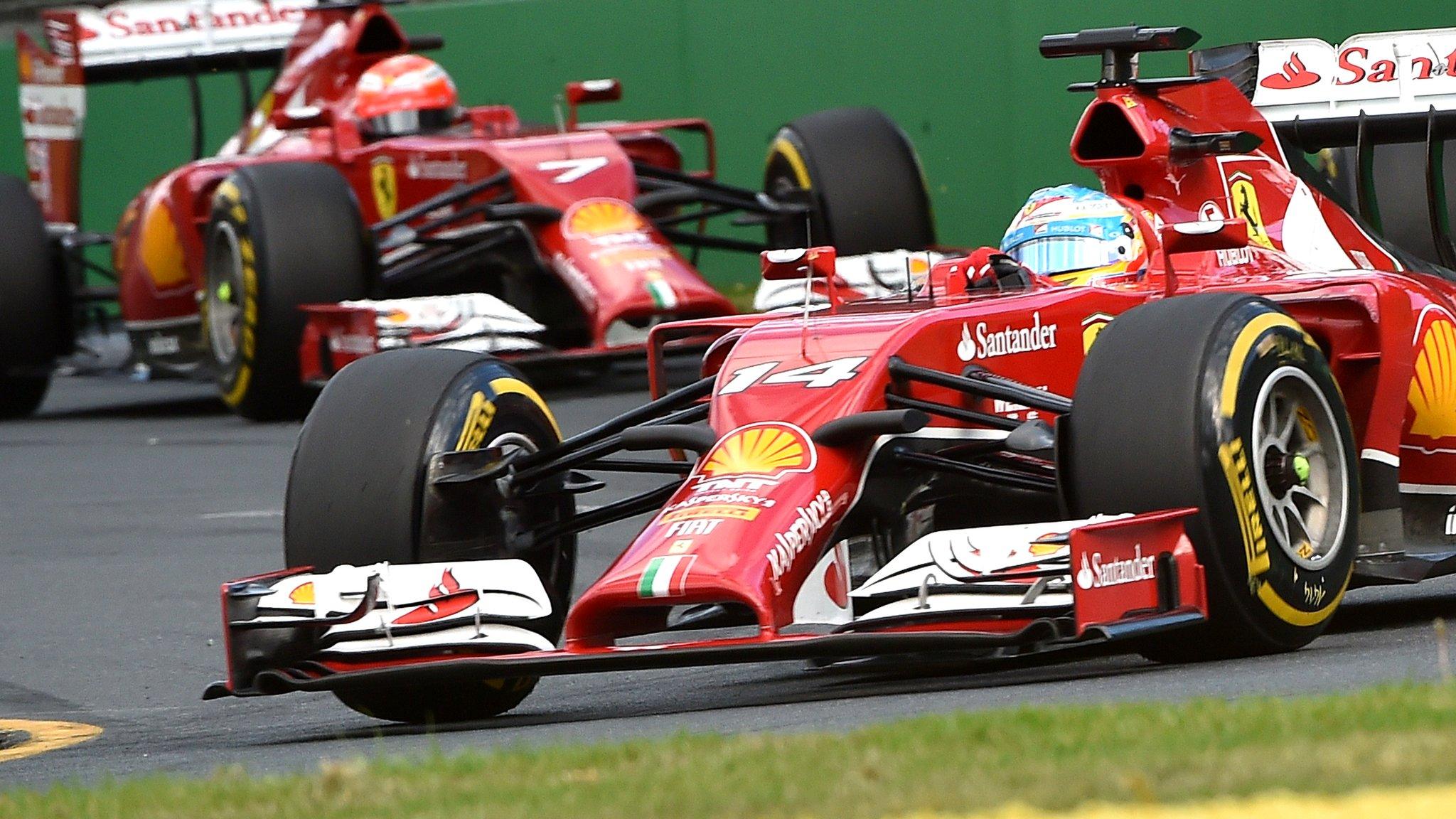
- Published16 March 2014
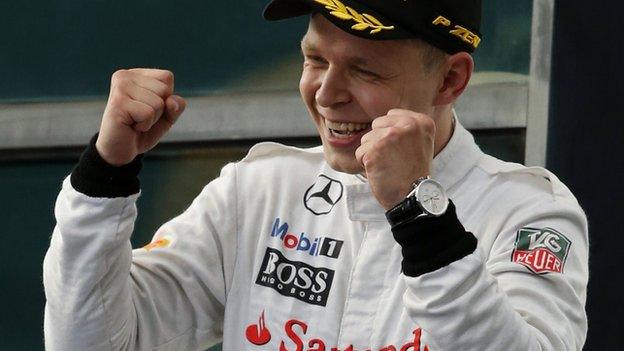
- Published16 March 2014
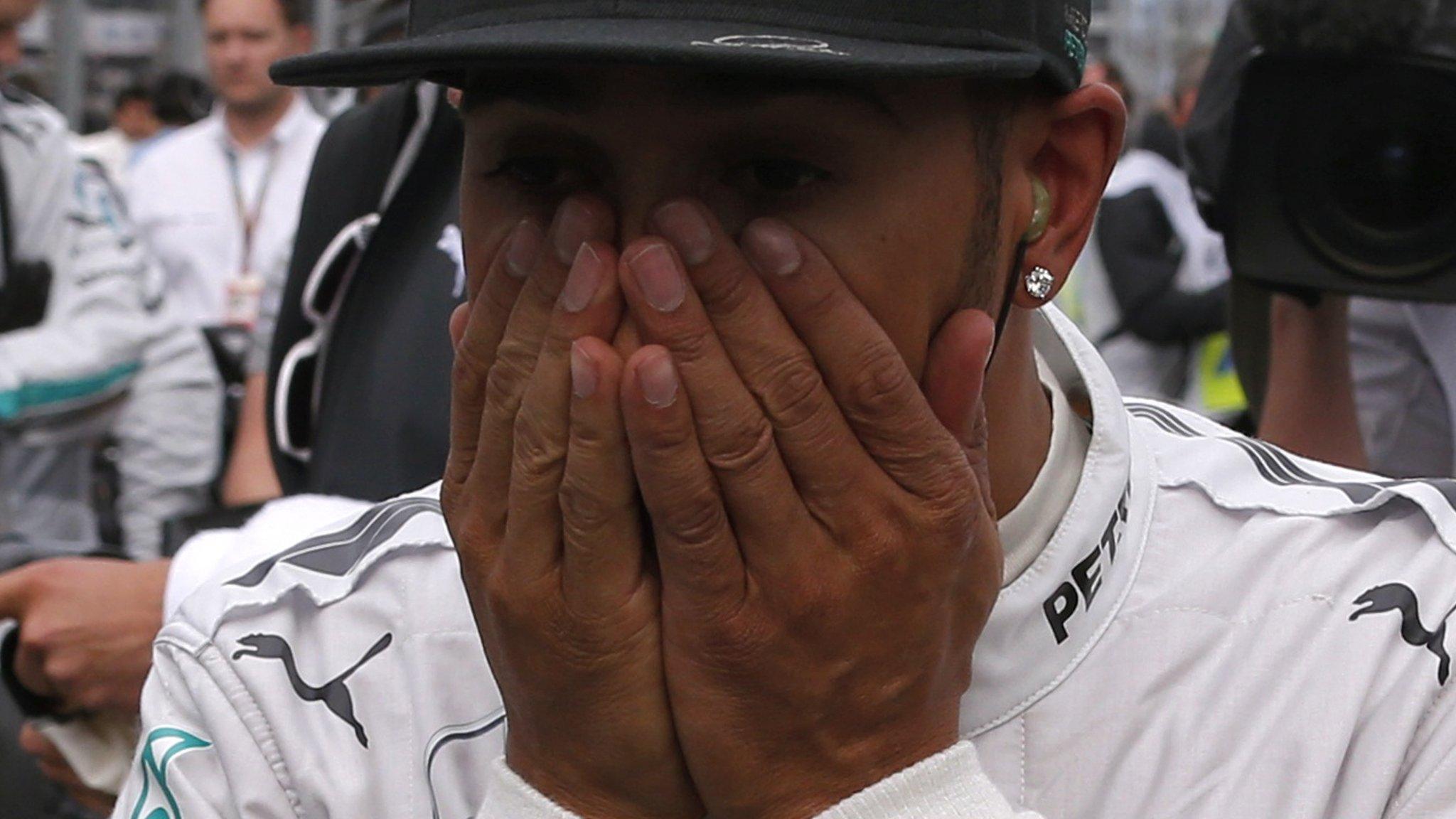
- Published26 February 2019
